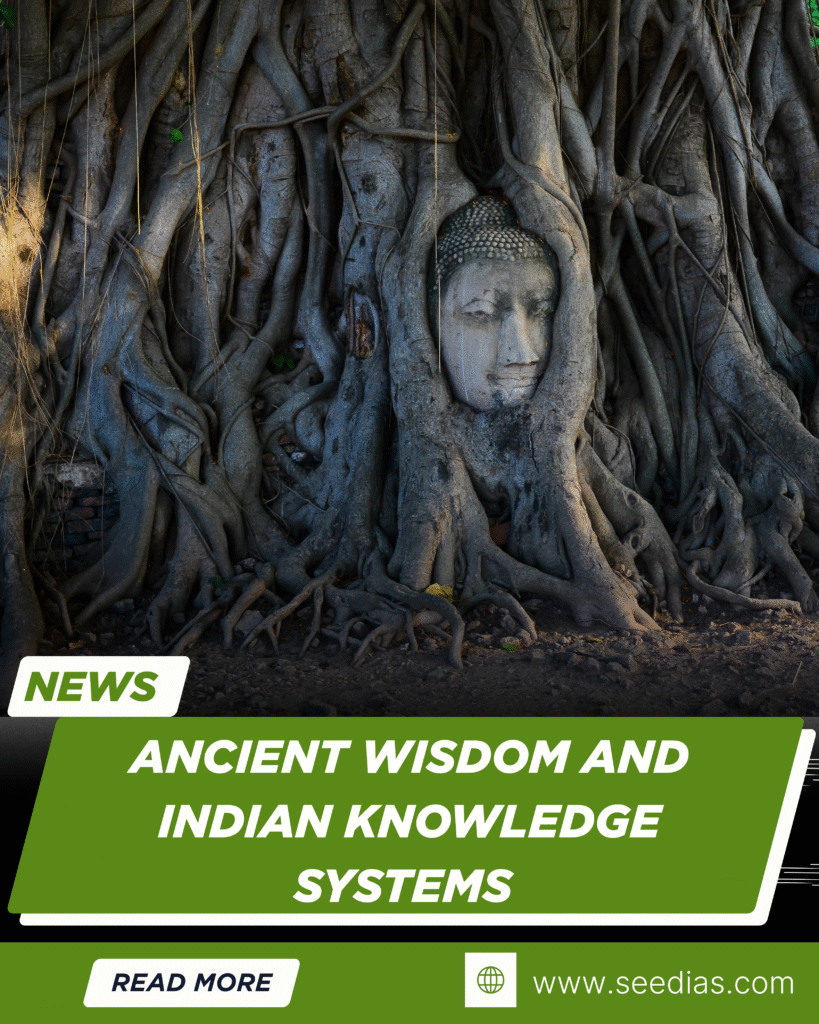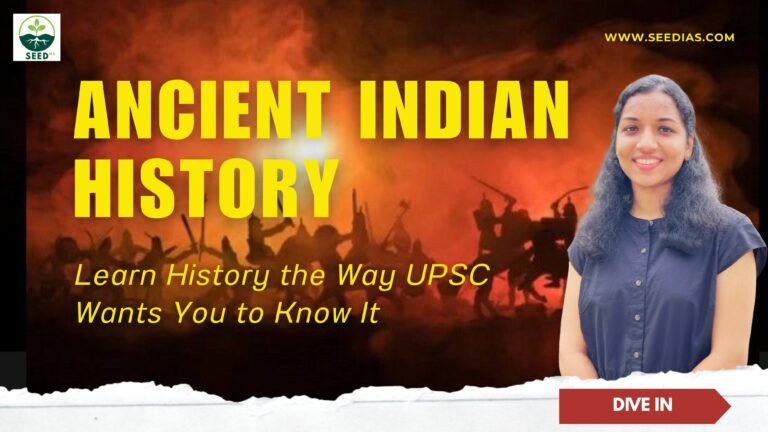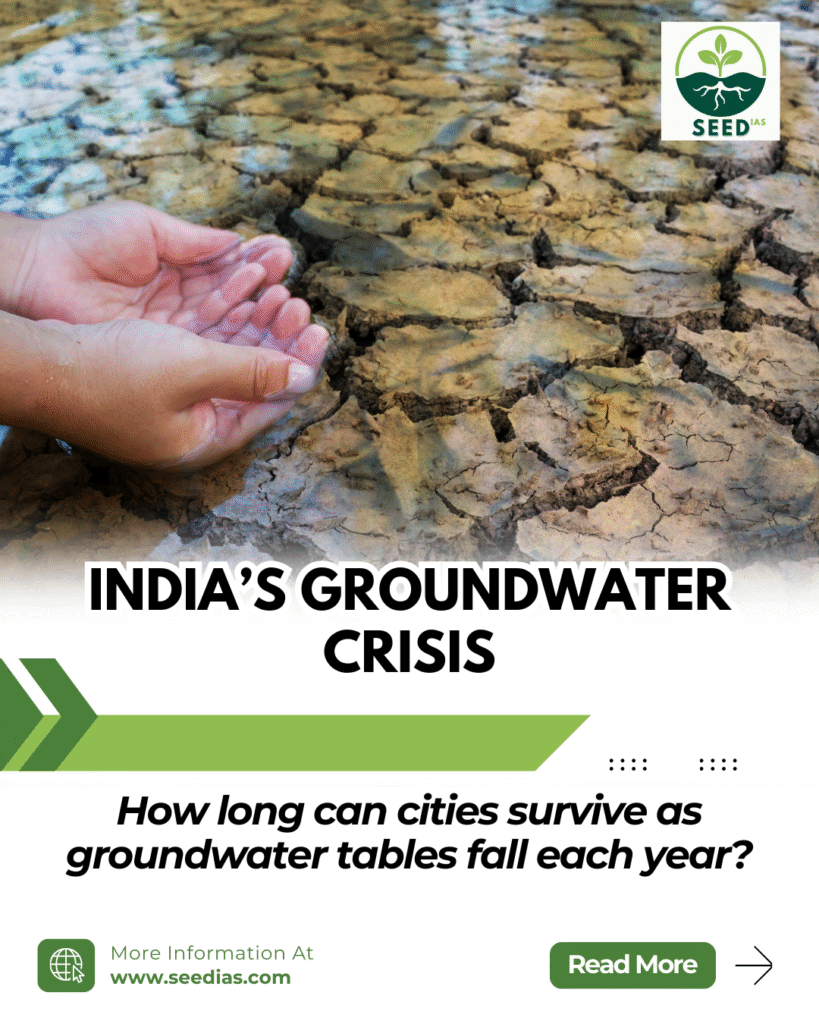Why in News?
The University Grants Commission (UGC) has released a draft Learning Outcomes-based Curriculum Framework (LOCF) for feedback. It integrates Indian knowledge systems into subjects like commerce, economics, chemistry, mathematics, and anthropology.
Key Terms/Concepts
Learning Outcomes-based Curriculum Framework (LOCF)
- Curriculum designed to define what students are expected to learn by the end of a course.
- Focuses on skill-building, values, and knowledge outcomes.
Indian Knowledge Systems (IKS)
- Traditional knowledge in fields like mathematics, medicine, philosophy, and art.
- Seeks to integrate cultural and historical insights into modern education.
Bharatiya Philosophy in Commerce
- Gurukul model of holistic education.
- Ethical leadership, sustainable business practices, and decision-making principles.
News Details
- UGC released draft LOCF for anthropology, chemistry, commerce, economics, geography, home science, mathematics, physical education, and political science.
- Heavy emphasis on Indian knowledge traditions.
- Some inclusions:
- Mathematics: Mandala geometry, rangoli, temple architecture, contributions of Indian mathematicians to algebra, geometry, and calculus.
- Commerce: Incorporation of Bharatiya philosophy, Kautilya’s Arthashastra.
- Economics: Indian concepts of wealth, dharmic thought, trade ethics, ecological values, indigenous exchange systems.
- Chemistry: Study of traditional beverages (kanji, mahua, toddy) and ancient atomic theories.
- Anthropology: Insights from Charaka, Sushruta, Buddha, Mahavira on nature-culture relationships.
Comparative Analysis: NEP vs LOCF
| Aspect | National Education Policy (NEP) | Draft LOCF |
| Approach | Multidisciplinary, holistic education | Primarily single-major focus |
| Curriculum | Encourages flexibility | Credits mostly for discipline-specific courses |
| Inclusion of IKS | General emphasis | Strong subject-wise integration (math, commerce, etc.) |
Prelims Practice
- Consider the following pairs:
- Kautilya’s Arthashastra – Commerce Curriculum
- Mandala Geometry – Mathematics Curriculum
- Traditional Beverages (Mahua, Toddy) – Economics Curriculum
How many of the above are correctly matched?
(a) One only
(b) Two only
(c) All three
(d) None
- Which of the following is a focus area of the draft LOCF?
- Bharatiya philosophy in commerce
- Ecological values in economics
- Quantum theory in anthropology
Select the correct answer:
(a) 1 and 2 only
(b) 2 and 3 only
(c) 1 and 3 only
(d) 1, 2, and 3
- With reference to the draft UGC curriculum framework, which statement is correct?
(a) It fully aligns with NEP’s multidisciplinary approach.
(b) It gives priority to single-major pathways.
(c) It excludes Indian knowledge systems.
(d) It is limited to physical sciences.
Mains Practice
- Discuss the significance and challenges of integrating Indian Knowledge Systems (IKS) in higher education through the draft UGC curriculum framework.
Answers Table
Prelims
1 → (b) Two only (1 and 2 correct; beverages in Chemistry, not Economics).
2 → (a) 1 and 2 only.
3 → (b) It gives priority to single-major pathways.














